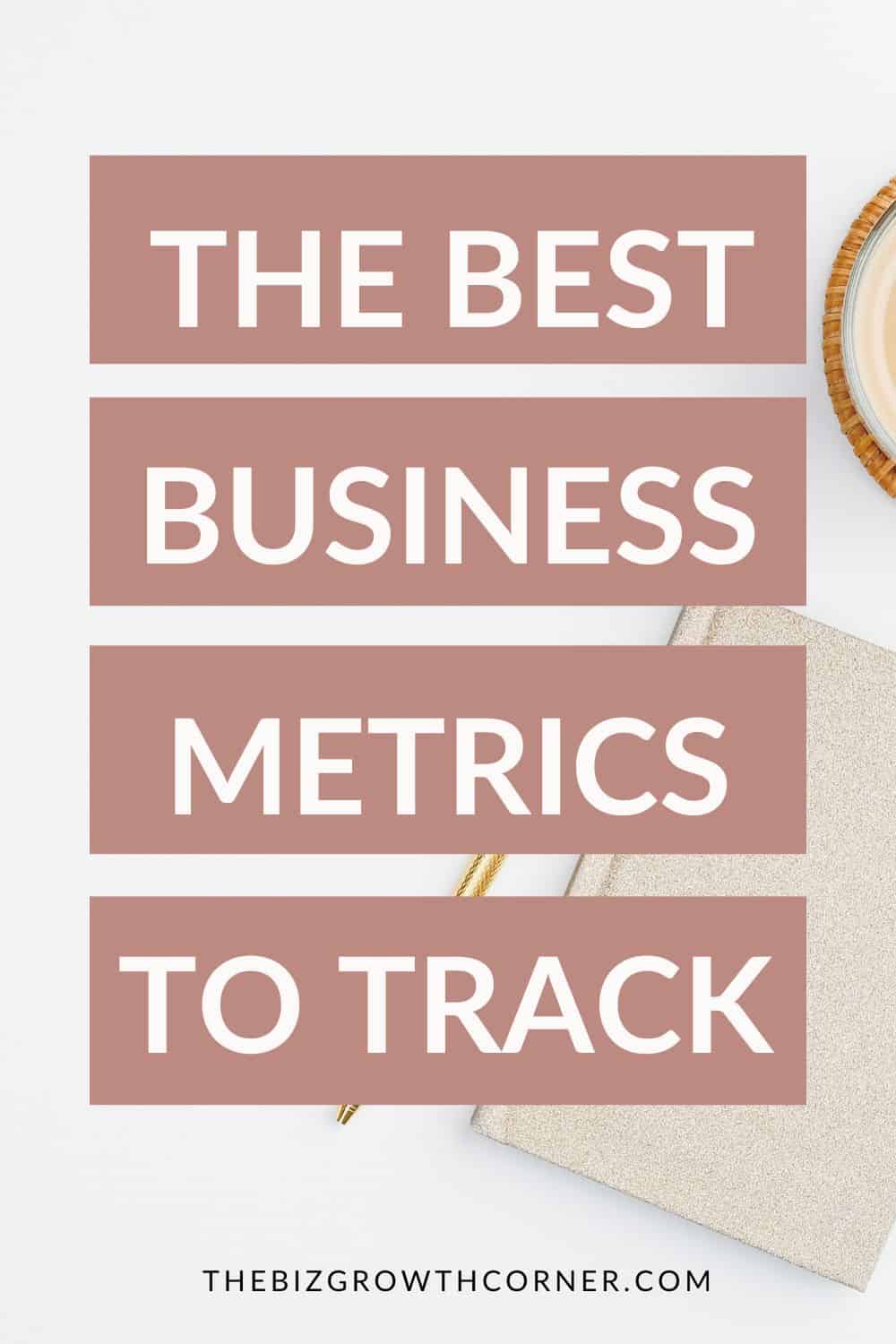There are lots of business metrics to track. However, some metrics are more important than others and those are the ones you should prioritize.
In this post, you’ll discover how to choose the best metrics to track for your business. But, before we dive in, let’s quickly look at why you need a set of business metrics to track.
Business metrics are performance indicators. They are probably the easiest way to gauge or assess how well your business is doing or for tracking outcomes.
Coming up with your own set of business metrics is a great way for you to monitor how well your business is doing.
With that out of the way, let’s look at some of the most important small business metrics.
1. METRICS THAT BOOST YOUR REVENUE & PROFIT
Some of the most important metrics are the ones that have the biggest impact on your business, especially on your revenue and profit.
Before you decide to track a business metric, make sure the metric will provide you with enough information or data that you can use to improve or boost your revenue or profit.
An example of this is your sales metrics. Tracking your sales metrics can help you improve your strategies and performance, which can lead to more sales and revenue for your business.
Another example is metrics that relate to different marketing campaigns. If you run different campaigns (whether email or social media), it’s important to track them so you can evaluate how successful they were, how they performed, and how you can improve future campaigns.
So, whatever business metric you choose to set or track, make sure they can provide you with a lot of useful information you can use to generate more revenue and profit for your business.
2. BUSINESS METRICS THAT GUIDE YOUR DECISIONS
Some of the most important business metrics are metrics that provide you with enough useful information to make the right decisions.
As a business owner, you have to make lots of important decisions to keep your business running smoothly. Whether it’s what products to create or what marketing strategies to use, you’re always making decisions.
Successful business owners know the importance of making the right decision at the right time. They also know that you can’t make decisions in a vacuum.
If you want to be successful, you have to learn how to make smart decisions and data-driven decisions. Your business needs metrics that provide enough useful data to make smart decisions.
Some examples of business metrics that fit this criterion are marketing metrics. For instance, your sources of traffic, and different marketing strategies like email, content, or social media. Things like that.
Outcome-based metrics can provide you with lots of information you can use to make smart decisions.
When you think of the best small business metrics, consider outcome-based metrics.

3. METRICS THAT ARE MEASURABLE
The most important business metrics are measurable or quantifiable.
If you can’t measure a particular metric, or if it’s not quantifiable, it’s not going to be of much use to you or your business.
The reason it’s important to use measurable business metrics is that they can help you assess whether you’re on track to achieve your goals or the effectiveness of your business strategies.
Basically, you want metrics that tell you how well or how poorly your business is doing.
Examples of business metrics that are measurable include:
- Revenue from a campaign
- Sales from a particular sales channel
- Monthly profit or loss
- Product sales
- New leads from an ads campaign e.g. Facebook ads
- Number of subscribers from a particular lead magnet
- Sales/revenue from a referral source or affiliate
- Leads or revenue from a particular activity
There are lots of examples to choose from, but this list is a good starting point and these metrics can have a big impact on your business.
If you’d like to know more about tracking your business performance or some metrics that can boost your profit, check out this $9 training, Track Your Way to Profitability.
At the end of the day, business metrics help you set and achieve your goals. They also help you assess your business performance so you can improve it.
So, decide what some of your key metrics are and start tracking them. Start with metrics from key areas of your business like marketing and sales. Focus on metrics that can have a huge impact on your business.
Do you have some business metrics that you track?
Other Blog Posts You Might Enjoy


